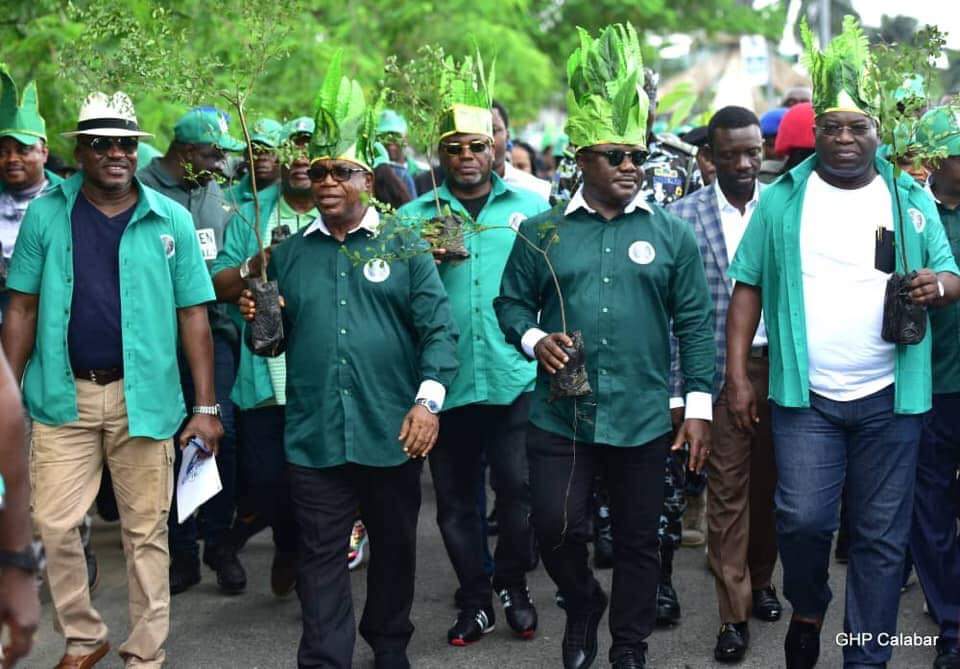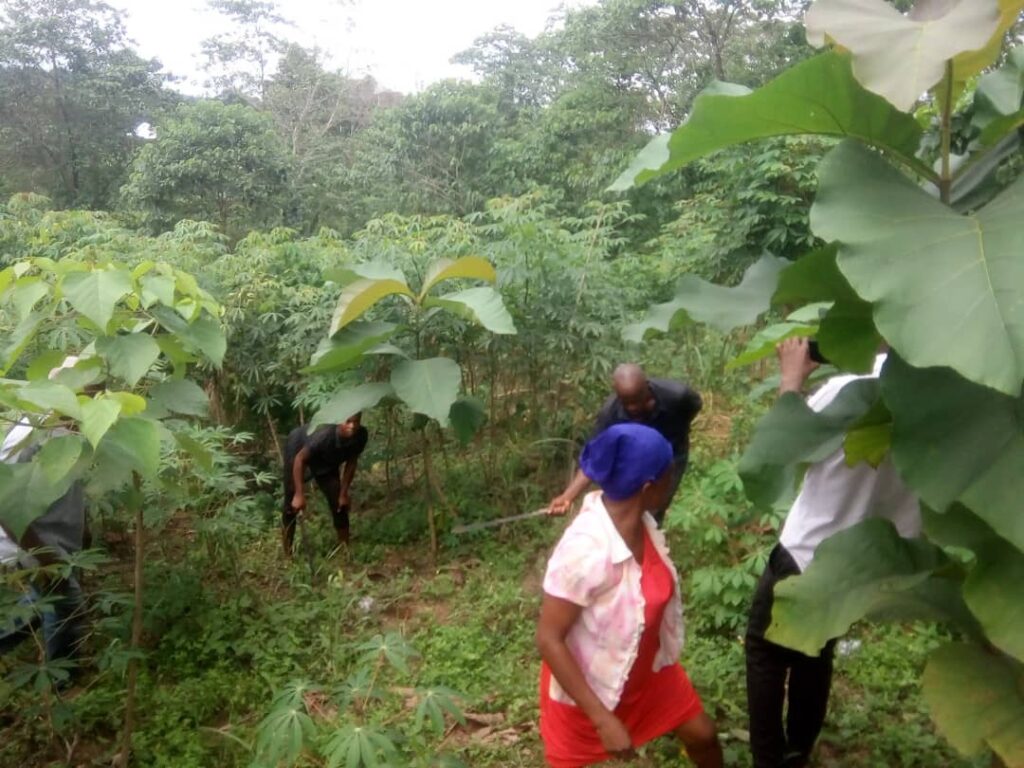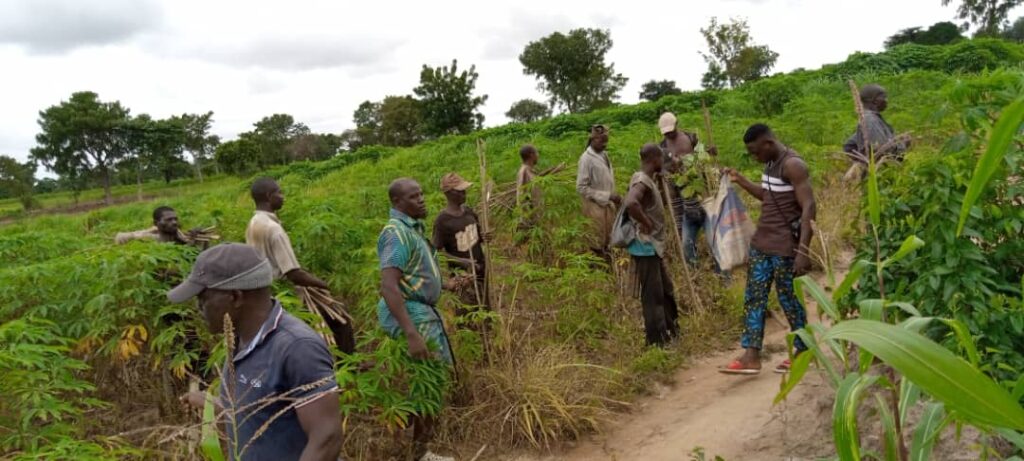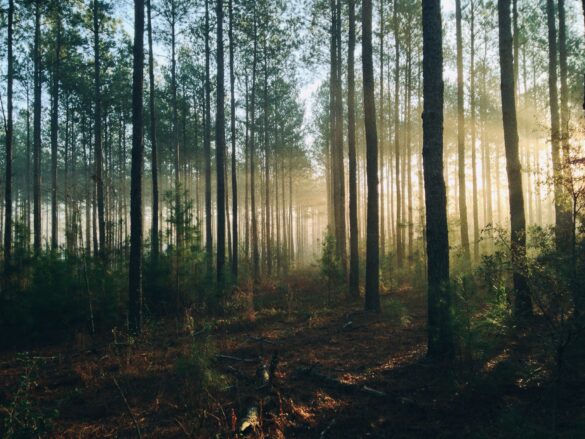Cross River State (CRS), located in the south-eastern region of Nigeria, is home to over 50% of the remaining forest of the country, comprising vast areas of tropical high forest, montane forest, savanna and the largest mangrove ecosystem in Africa. However, the Cross River Forest, recognized as one of the 25 biodiversity hotspots in the world, is severely threatened with an annual deforestation rate of 2.95% between 2007-2014 with unsustainable agricultural practice, fuelwood harvesting, and logging identified as key drivers of deforestation. To respond to the challenges, Cross River State government is implementing diverse actions on the ground.
- Context
Fuelwood is central to the livelihood of the African people. Over 70% of the Nigerian population still relies on fuel wood to meet their energy needs for cooking and heating. Particularly in Cross River State, the unsustainable harvesting of forest trees for fuelwood is one of the major drivers of deforestation and forest degradation especially the fast depletion of the mangrove tree species as fuelwood which is increasing flooding, the loss of forest cover, destruction of habitat for biodiversity and loss of non-timber forest product such as forest fruit, seed, medicine, etc., which exacerbate the impact of climate change. Furthermore, the most prevalent way of cooking with biomass is the “three-stone or tripod – stand cookstoves”, which is most inefficient and bears serious risks to human health and the environment. Recognizing these challenges, the Cross River State Forestry Commission (CRSFC) has worked over the years to undertake the sustainable management of the CRS forest, in close collaboration with the forest-based communities through organized platform called Forest management Committees (FMCs), other stakeholders – donor agencies including ODA (Overseas Development Agencies), GEF (Global environment Facility) Governor Climate and Forest Taskforce, FAO, UNDP and UNEP.
- Innovative communication
The annual Calabar Green Carnival led by the state Governor, along with lawmakers, politicians and other stakeholders is a very pragmatic platform for conveying the message of climate action to the public and building climate resilience through massive afforestation and reforestation in the state. For instance, street party messages´ on placards are displayed with catchy captions about the importance of preserving ecosystems. Some specific messages we portray include #ClimateChangeisreal, #StopDeforestation, #StopBushBurning, and #PlantTreesToday, among others.

- Flagship initiative
In combating Climate change, the Sustainable Fuelwood Management (SFM) project was introduced via an agroforestry land-use system to adress clean energy need, boos forest reforestation and food production within degradated forest areas in the State.
The project aim is the production and utilization of fuelwood in an environmentally sustainable land-use system to meet the energy need through the use of clean cook stove. SFM also seeks to enhance the production of food, fodder, organic soil fertilizer and reclamation of the coastal landscape, depleted forest and marginal lands.
With support from GEF and UNDP, Cross River State through the CRSFC built the capacity of landlord forest communities in the raising of fast growing trees (Tectonia Grandis and Gmelina Arborea) for fuelwood and the cultivation of leguminous crops for food and fodder. This agroforestry land-use system allows for the sustainable production of fuelwood, food, fodder and other non-timber forest products. Crops cultivated include leguminous crop such as cow pea, which help in nitrogen fixation in the soil thus helping to build back soil nutrient in this degraded land. This system of land use enhance the capacity of degraded land to conserve biodiversity, sequestrate carbon and protect watershed.
Major achievements of the SFM project in CRS Nigeria:
- Fast-growing trees in vastly degraded forest reserves and marginal lands has generated a sustainable supply of fuelwood
- Degraded arid lands in the northern part of the state in Ogoja, Obanliku, Yala, and Obudu are being restored and desert encroachment is pushing back.
- The project started in 2017 and so far, they have 72 hectares of the agroforestry land-use system across nine communities in the state.
- The cultivation of soil-nitrogen-fixing- trees and crops is promoting food security, also improving the nutrient content of the degraded lands
- There has been a significant reduction in forest fire outbreaks and reduction in desertification, especially in the norther arid regions.
- The initiation of the transfer of ownership of plantations to individuals and/or groups of individuals (a process in progress) is enhancing sustainability
- Support to Community Forest Management Committees in project landlord communities (Ogoja, Obanliku, Yala, Odukpani, Obudu, Akpabuyo, and Calabar Municipal) is boosting project maintenance, goodwill among the community and the state.
- Capacity of the forest community built to fabricate and market fuel-efficient (clean) cook- stoves with attendant improved health of users. Over 1792 stoves fabricated and sold till date
- Establishment of Carbonization canters at Ochon (Obubra) and Biakwan (Boki) for briquette making (conversion of raw material like rice husk, coconut shavings, palm kennel shell to bio-fuel), till date 20 females and 10 males artisans trained in briquette making.
- Formation of SFM Multi-purpose cooperative society for the empowerment of small scale entrepreneurs with micro credit to enhance cook stove fabrication and carbonization businesses value chain.


Watch our #RegionsVoice video and discover more about the Sustainable Fuelwood Management story:

